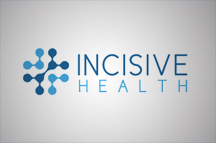Taken your eye off Twitter? Read some of the things we saw in the past seven days.
-
 How did World War One change medical treatment. From blood banks to the psycho-analysis, the impact was massive.
How did World War One change medical treatment. From blood banks to the psycho-analysis, the impact was massive. - England footballers take note. The secret to a successful penalty is always aiming for the same spot, so scientists claim.
- When radiologists take selfies.
- The world’s oldest condom.
- Ciaran Devane is leaving Macmillan Cancer Support, but is staying as a non-executive director of NHS England. You’ll be missed Ciaran. Cancer’s loss is the British Council’s gain.
- “If basic statistics are a problem for you, I’d advise becoming a journalist so at least you can get paid for it.” The Daily Mash at its finest.
- Testing times for testing. The number of clinical trials approved in Britain has dropped by 14% between 2005 and 2013.
- Interesting blog on learning the lessons from Ebola.
- 38 years later at Yambuku (or Ebola ground zero). A moving and depressing article by the microbiologist who was on the scene of the initial Ebola outbreak.
- The role of ‘liquid biopsies’ in assessing and treating cancer.
From America:
- Seven key questions to ask your oncologist, by an oncologist. Thankfully number 6 doesn’t (usually) apply in England.
- The importance of personal professional accountability and the role of morbidity and mortality conferences.
- 36% of end-of-life spending and 17% of US health spending are associated with physician beliefs unsupported by clinical evidence, according to this research.
- Growth in US health jobs – an economic saviour through recession – is starting to slow.
And finally…
- Hospital nutrition still has a way to go. These cheese and biscuits were provided to a patient after a 25 hour labour and emergency c-section).
Incisive Health is the new force in health policy and communications. In an NHS environment that is noisy, changing rapidly and where decision-makers are under intense pressure, policy communications need to be incisive to make an impact. We know how to cut through the noise and competing priorities to deliver results that enhance our clients' businesses and reputations and – ultimately – improve healthcare for patients.














